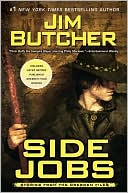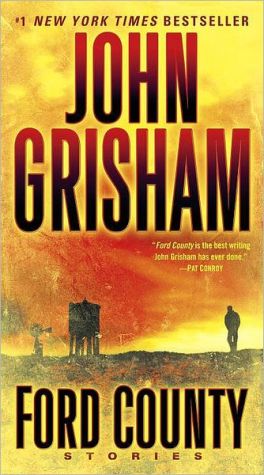Pilgrims
When it appeared in 1997, Elizabeth Gilbert’s story collection, Pilgrims, immediately announced her compelling voice, her comic touch, and her amazing ear for dialogue. “The heroes of Pilgrims . . . are everyday seekers” (Harper’s Bazaar)—brave and unforgettable, they are sure to strike a chord with fans old and new.
Search in google:
Unabridged CDs • 6 CDs, 7 hours When it appeared in 1997, Elizabeth Gilbert's story collection, Pilgrims, immediately announced her compelling voice, her comic touch, and her amazing ear for dialogue. "The heroes of Pilgrims . . . are everyday seekers" (Harper's Bazaar)—brave and unforgettable, they are sure to strike a chord with fans old and new.Detroit Free PressGilbert's spry stories roam from Wyoming to New York City, from Minnesota to Texas. Cowboys, strippers, magicians—her characters are "everyday people whose...rich exterior lives mask simple, if brave, hopes and dreams.
Pilgrims1Elk Talk19Alice to the East33Bird Shot49Tall Folks69Landing85Come and Fetch These Stupid Kids95The Many Things That Denny Brown Did Not Know (Age Fifteen)109The Names of Flowers and Girls129At the Bronx Terminal Vegetable Market147The Famous Torn and Restored Lit Cigarette Trick175The Finest Wife201
\ Detroit Free PressGilbert's spry stories roam from Wyoming to New York City, from Minnesota to Texas. Cowboys, strippers, magicians—her characters are "everyday people whose...rich exterior lives mask simple, if brave, hopes and dreams.\ \ \ \ \ Publishers Weekly\ - Publisher's Weekly\ Like Pam Houston's popular collection Cowboys Are My Weakness, Gilbert's first book of stories take place in the stark surroundings of the contemporary West. Whether Gilbert's characters find themselves in Missoula or New York, however, we see them struggle toward lives that always seem just beyond their grasp. In the title story, an East Coast girl challenges a Wyoming cowhand to run off with her, knowing they won't, knowing that the mountains that call them also keep them trapped. In "Tall Folks," an East Village bar owner sees the end of her business arrive with the opening of a strip joint across First Avenue. Looking back at the bar owner's habit of hiring women bartenders to attract customers, Gilbert writes: "She had done very well this way, brokering these particular and necessary loves." An eye for convincing detail and a comic's ear (" `Every good joke begins, "A man walks into a bar' ") mark each of these 12 stories. They waver only in the endings: too many trail off prematurely, before they can take on appreciable depth. The most obvious exception is "The Finest Wife," about an elderly schoolbus-driver who, one morning, finds all her past lovers waiting in place of the kindergartners she usually picks up. Told with an air of easy magic, this charming tale promises full-length, warm-blooded, compelling work to come.\ \ \ Library JournalGilbert's first collection of short stories is remarkable for its breadth, range of setting, and subject matter. Each world her characters inhabit, whether ranchlands in the West or the Bronx Terminal Vegetable Market, is authentic and fully realized. Her stories do not finish with clever twists or pat endings; we simply spend time with her characters and believe that they go on living after the story is finished. Without editorializing, Gilbert lets us discover the characters; when we read of "The Many Things That Denny Brown Did Not Know (Age Fifteen)," we also learn the important things he did know. And though Rose led a life of unrepentant promiscuity, she was, after all, "The Finest Wife." -- Christine DeZelar-Tiedman, Univ. of Idaho Library, Moscow\ \ \ \ \ Library JournalGilbert's first collection of short stories is remarkable for its breadth, range of setting, and subject matter. Each world her characters inhabit, whether ranchlands in the West or the Bronx Terminal Vegetable Market, is authentic and fully realized. Her stories do not finish with clever twists or pat endings; we simply spend time with her characters and believe that they go on living after the story is finished. Without editorializing, Gilbert lets us discover the characters; when we read of "The Many Things That Denny Brown Did Not Know (Age Fifteen)," we also learn the important things he did know. And though Rose led a life of unrepentant promiscuity, she was, after all, "The Finest Wife." -- Christine DeZelar-Tiedman, Univ. of Idaho Library, Moscow\ \ \ \ \ Detroit Free PressGilbert's spry stories roam from Wyoming to New York City, from Minnesota to Texas. Cowboys, strippers, magicians--her characters are "everyday people whose...rich exterior lives mask simple, if brave, hopes and dreams.\ \ \ \ \ Liam CallananThe author 'embraces the bizarre and fabulous with similar enthusiasm.' -- The New York Times Book Review\ \ \ \ \ Kirkus ReviewsA fine first collection of 12 stories that are richly varied in setting and content, and enlivened by their author's flair for vigorous dialogue and concise summary statement.\ Gilbert's tales are ostensibly linked by the metaphor indicated by her book's title (and underscored by her use as epigraph of the opening lines of Chaucer's Canterbury Tales). It's true that all her characters seek respect or self-definition, and also that many of them are looking for love, of whatever kind is available, in all the wrong places with all the people likeliest to hurt or disappoint them. More-or-less conventional sexual situations are explored with economy and wit in the title story's account of a young cowboy's truculent relationship with a female ranch-hand, the Saroyan-like "Tall Folks" in which a woman saloon owner slakes her loneliness, as it were, by falling for her handsome young nephew, and the amusing "Landing," about a rootless woman's fascination with a sexy paratrooper. Gilbert strikes deeper with several more ambitious stories, most notably the resonant "Elk Talk," a skillful symbolic revelation of a woman's endangered idyllic life in the Wyoming mountains; "The Many Things That Denny Brown Did Not Know (Age Fifteen)" (Gilbert has a thing for unwieldy titles), a clever picturing of adolescent confusion, presented through an ingeniously handled omniscient narration; and "The Famous Torn and Restored Lit Cigarette Trick," a nicely understated account of a successful Hungarian immigrant in Pittsburgh whose violent nature becomes the guiding principle in his life. Ranging further still, Gilbert offers (in "At the Bronx Terminal Vegetable Market") a hauntingly vivid portrait of a naive porter who tries to convince himself he can run for president of his mob-controlled union.\ The best kind of debut volume: a striking display of a versatile writer flexing her muscles and tackling a broad array of subjects and themes.\ \ \








